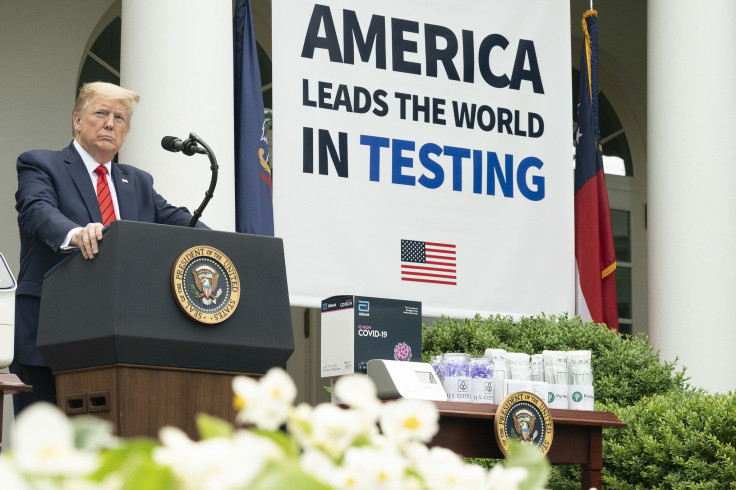Coronavirus Global Death Toll Tops 302,000, But New Cases In US Are Slowing Down

KEY POINTS
- Over 302,000 have died worldwide due to coronavirus as of May 14
- Rise in new cases is slowing down including in the U.S.
- However, NIH senior advisor Rick Bright said the U.S. is not ready to reopen
- The CDC released "decision trees," a reopening checklist for various industries
The coronavirus death toll reached more than 302,000 on Thursday, but the rise in new cases in the United States is slowing down.
The increase in the number of deaths has also slowed down worldwide compared to April when the death toll used to rise to 50,000 in a matter of seven days. Now, it takes more than 10 days to reach this rate of increase, according to the data from the Johns Hopkins University and Medicine.
The total number of recoveries worldwide, on the other hand, has breached more than 1.7 million while there are still over 2.5 million active cases. About 98% of these cases are considered mild.
The data also shows that around 24 states in the U.S. have had case counts going down, while 17 states held their case count numbers steady in the past few days.
This data comes at a time when many states are lifting their stay-at-home orders yet only 11% of Americans said it's safe to reopen the country and end social distancing measures in a poll conducted by The Economist and YouGov between May 3 and 5.
Meanwhile, National Institutes of Health (NIH) senior advisor Rick Bright said during the Energy and Commerce Committee hearing Thursday the Trump government still doesn't have a comprehensive plan against COVID-19, including testing capacity, and he's concerned about reopening the country.
"Time is running out because the virus is still spreading everywhere, people are getting restless to leave their homes,” Bright said in his statement. "I fear the pandemic will get far worse and be prolonged, causing unprecedented illness and fatalities."
Bright was removed as the Biomedical Advanced Research and Development Authority director in April. He claimed he was ousted from his post because he resisted the Trump administration's push to make two antimalarial drugs, chloroquine and hydroxychloroquine, widely available as COVID-19 treatment.
Meanwhile, the Centers for Disease Control and Prevention (CDC) released a new guideline, dubbed as "decision trees," to help restaurants and bars, schools and childcare facilities, workplaces and transportation services decide to reopen.
"These six decision trees are to assist leaders of these entities in thinking through health considerations and making operational decisions during the COVID-19 pandemic," a CDC spokesperson said. The decision trees are basically a checklist and a step-by-step guide on enforcing safety measures against the virus.
© Copyright IBTimes 2025. All rights reserved.





















